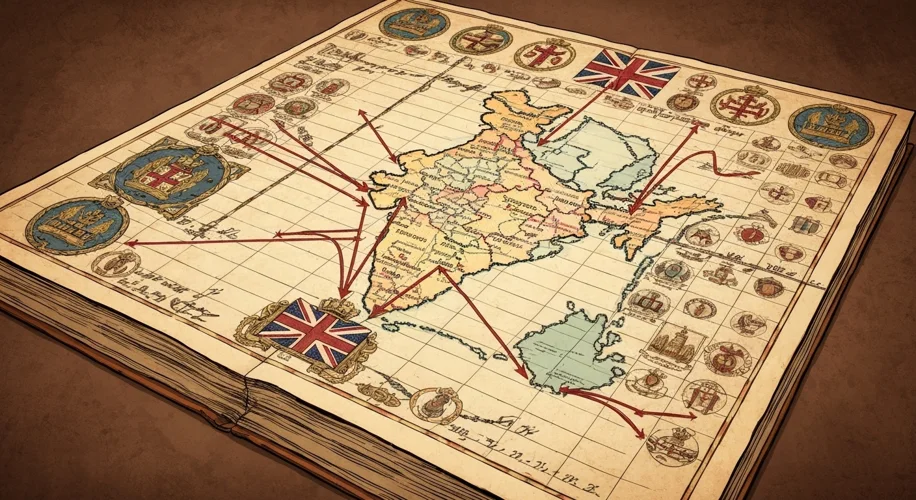The British Empire, a vast global network that once spanned continents and oceans, often conjures images of redcoats, regal pronouncements, and the “civilizing mission.” Yet, beneath the veneer of imperial grandeur lay a complex and often brutal economic engine, a system of extracting wealth that fundamentally reshaped the global landscape. In his seminal work, An Era of Darkness: The British Empire in India, and in broader discussions, Shashi Tharoor meticulously dissects these economic realities, pulling back the curtain on the staggering cost borne by the colonized.
Tharoor’s analysis is not merely academic; it is a passionate reclaiming of a narrative often obscured by imperial apologia. He paints a stark picture of how the Empire operated, not as a benevolent force, but as a vast, intricate enterprise designed to enrich Britain at the expense of its dominions. This wasn’t accidental; it was the explicit purpose of colonial rule.
The core of this economic exploitation, as Tharoor highlights, was the concept of “Imperial Receipts.” This term encompasses the myriad ways Britain siphoned wealth from its colonies. At its most basic, it was taxation – but not just any taxation. It was taxation designed to fund British administration, British military might, and ultimately, British prosperity. Taxes were levied on everything from land to salt, often disproportionately affecting the poorest populations. These revenues, instead of being reinvested in the local economies or used for public welfare, flowed directly back to the metropole.

Beyond direct taxation, the Empire engineered a system of trade that was overwhelmingly favorable to Britain. Colonies were mandated to supply raw materials – cotton from India, sugar from the Caribbean, rubber from Malaya – at prices dictated by British manufacturers. These raw materials were then processed in British factories and sold back to the colonies as finished goods, often at inflated prices. This created a vicious cycle of dependency, stifling the development of indigenous industries and ensuring that colonies remained perpetual suppliers and markets for British goods.
Tharoor particularly emphasizes the devastating impact of deindustrialization in India. Before British rule, India was a renowned center for textile production, its cotton goods prized across the globe. The Empire, however, actively dismantled these industries. British machine-made textiles, flooding the Indian market, undercut local artisans. Laws were enacted to prevent India from developing its own industries, ensuring it remained a producer of raw cotton for Lancashire mills, rather than a competitor.
The consequences were catastrophic. Famines, which had always been a feature of Indian life, became more frequent and more deadly under British rule. Tharoor argues persuasively that these famines were not solely the result of natural disasters but were exacerbated by colonial economic policies. Grain was exported even as populations starved, and revenue-generating cash crops were prioritized over food security. The millions who perished in famines like the Great Bengal Famine of 1943 stand as a grim testament to the human cost of imperial economics.
Moreover, the infrastructure built by the British – railways, telegraphs – was not primarily for the benefit of the local populations. Instead, it was designed to facilitate the extraction of resources and the movement of troops to maintain control. While these may appear as developmental projects, their underlying purpose was rooted in imperial necessity, not altruistic progress.
Tharoor’s work serves as a crucial corrective to the often-sanitized accounts of empire. He compels us to look beyond the romanticized narratives and confront the cold, hard economics that underpinned British global dominance. The “receipts” of empire were not merely financial entries; they represented the systematic impoverishment of nations, the suppression of potential, and the enduring legacy of inequality that continues to shape our world today.
By tracing the flow of wealth from colony to metropole, Tharoor illuminates the profound injustice at the heart of imperialism. His research underscores that understanding the economic mechanics of empire is not just an intellectual exercise, but a moral imperative for comprehending the historical roots of global disparities.

